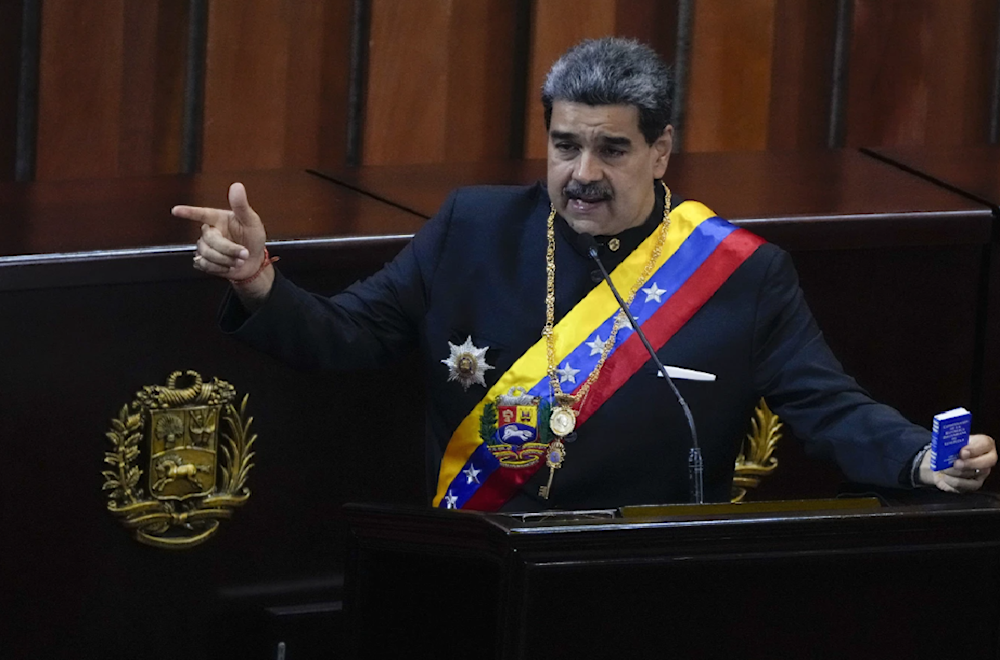US broke int'l law spying on Venezuela officials via covert program
Operation Money Badger reportedly targeted dozens of people, including Venezuelan President Nicolas Maduro.
-

Venezuelan President Nicolas Maduro holds a small copy of his nation’s constitution during a ceremony in Caracas, Venezuela, on January 31, 2024. (AP)
The Associated Press has obtained a memo detailing a years-long covert operation by the United States Drug Enforcement Administration that sent undercover operatives into Venezuela to secretly record and build alleged drug-trafficking cases against the country's leadership; a plan the US acknowledged from the very beginning was potentially a violation of international law.
Operation Money Badger reportedly targeted dozens of people, including Venezuelan President Nicolas Maduro.
Wes Tabor, a former DEA official who served as the agency’s country attaché in Venezuela prior to the operation beginning, did not confirm or deny the operation but called the US the "world police" and justified the illegal means of the US in carrying out such an operation by unfoundedly accusing Venezuela of "flooding the US with dope."
Recently, Maduro accused the DEA and CIA of destabilizing the nation. In a TV interview, he expressed that he does not believe US President Joe Biden is directly involved but expressed that the "CIA and the DEA operate independently as imperialist criminal organizations.”
According to AP, the highly classified document was written during former President Donald Trump's "maximum pressure" campaign against Venezuela.
Within weeks of Maduro's election, senior DEA officers planned to use at least three undercover informants for the said operation.
However, because the plan appeared to violate Venezuelan and international law, it required approval from the Sensitive Activity Review Committee, or SARC, a secretive panel of senior State and Justice Department officials reserved for the most sensitive DEA cases involving complex ethical, legal, or foreign policy considerations.
The DEA, under the guise of exposing Colombian drug traffickers and "corrupt officials", enabled illegal wire transfers through US-based front firms and bank accounts.
It is worth noting that this operation is not the first of its kind.
In 1998, Mexico was not told about a three-year money laundering sting known as Operation Casablanca, which was partially carried out on Mexican soil and included around 160 individuals, including numerous bank officials.
Notably, legal experts say no international court or tribunal has jurisdiction to hold the United States or its agents liable for covert law enforcement efforts in other nations, and the US Supreme Court has supported arrests and evidence gathered during such operations.
However, according to law professor Evan Criddle, covert operations without a host country's consent are a violation of international law. He believes the memo will "cause some embarrassment to the United States, prompt Venezuelan diplomats to register their objections, and potentially inhibit future cooperation.”
The Operation Money Badger document was never meant to be made public. It was leaked by the US attorney's office in Manhattan by mistake in a file-sharing website with dozens of government exhibits during the bribery conspiracy trial of two former DEA supervisors who spearheaded the agency's attack against the Maduro government last year.
It was removed hours after an AP reporter inquired about it, and it is not clear if Money Badger is still ongoing.

 3 Min Read
3 Min Read








